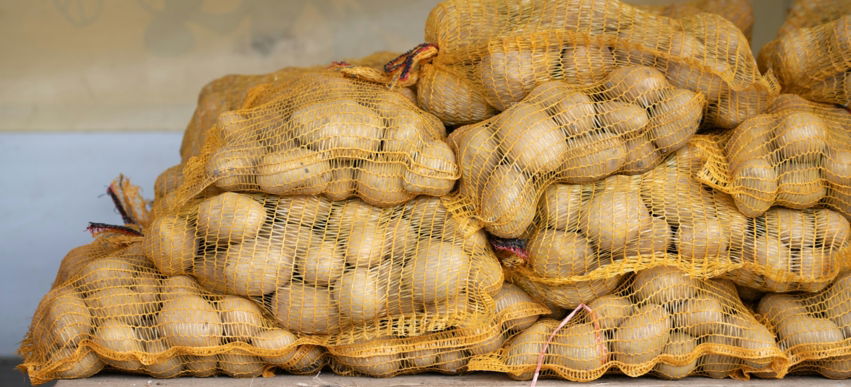Blog
Quality Over Quantity: Why Authenticity Matters in Indian Food Exports
Dr. Dhananjay Datar | 16th Aug 2025

In the fast-growing global food market, Indian products have carved out a unique place. From fragrant spices to traditional snacks, buyers worldwide seek authenticity and quality. However, in the race to expand, some exporters risk diluting what makes these products special. While focusing on quantity might boost short-term profits, it is quality and authenticity that build lasting brands and loyal customers. Prioritizing quality ensures that Indian food exports not only survive but thrive on the international stage.
1. The Global Appetite for Authentic Indian Food
Across the world, there is a growing demand for authentic Indian flavors, especially in markets like the Middle East, Europe, and North America. Consumers in these regions seek genuine products that reflect India’s rich culinary heritage and traditions. Authenticity fosters trust and an emotional connection between the consumer and the product, making it more than just food—it’s an experience. This trust also drives premium pricing, as seen in products like organic turmeric from India, Darjeeling tea, and hand-ground masalas, which command higher value because of their true-to-origin quality.
2. Quality Control as a Competitive Advantage
Ensuring high-quality raw materials sourced from trusted, certified suppliers is fundamental to maintaining authenticity. Advanced quality testing laboratories play a crucial role in meeting and exceeding global standards, thereby giving Indian exporters a competitive edge. Certifications such as FSSAI, ISO, HACCP, and organic labels are not just paperwork but powerful badges of credibility that open doors to premium markets and build confidence among international buyers.
3. The Risk of Compromising Quality for Volume
Chasing volume without stringent quality controls can be detrimental. Bulk production often risks contamination, inconsistency, and ultimately, brand damage. There have been real-world cases where exporters faced bans or costly recalls due to lapses in quality. Such incidents erode years of brand trust, and regaining consumer confidence in international markets can take a very long time. Therefore, prioritizing quality over sheer volume safeguards both reputation and business continuity.
4. Building Brand Loyalty Through Consistency
Consistency in quality is the cornerstone of building brand loyalty. Maintaining high standards ensures repeat orders and customer retention. Consumers remember one bad batch far longer than many good ones, which can tarnish a brand’s image. Brands like MDH and Amul have cemented their positions globally by relentlessly delivering consistent quality, making them household names trusted across generations.
5. Leveraging Technology for Quality Assurance
Technological innovation is transforming quality assurance in food exports. AI-powered sorting machines help detect impurities in spices and grains with unmatched accuracy. Blockchain technology enables transparent sourcing and traceability, reassuring buyers about product origins. IoT-based temperature monitoring during shipping protects sensitive products from spoilage, ensuring they reach consumers in perfect condition. These technologies provide exporters with tools to uphold quality at every step.
6. Storytelling to Highlight Authenticity
Sharing the origin stories behind Indian food products adds emotional value and distinguishes them in crowded markets. Communicating narratives such as “grown in the fertile plains of Punjab” or highlighting traditional handcrafting methods helps consumers connect with the product beyond its taste. Packaging and marketing that emphasize cultural heritage not only attract the Indian diaspora but also educate and intrigue global consumers who are willing to pay more for a story they resonate with.
7. The Long-Term Payoff of Prioritizing Quality
Prioritizing quality leads to higher profit margins through premium positioning and stronger relationships with distributors and retailers. Exporters who commit to authenticity build legacy brands that can withstand competitive pressures and economic fluctuations. Investing in quality today secures a sustainable future, ensuring that Indian food exports remain a symbol of excellence worldwide.
Conclusion
In global markets, authenticity is not a passing trend—it’s a timeless value. For Indian food exporters, putting quality before quantity is not only ethical but also smart business. Those who protect the heritage and purity of Indian products will thrive today and leave a stronger legacy for generations to come.
Call to Action
Ready to elevate your Indian food exports with uncompromising quality?
Partner with Masala King to ensure your products meet global standards, tell your authentic story, and capture premium markets worldwide. Contact us today to start your journey toward building a lasting, trusted brand on the international stage.
TAGS
Exports. Logistics. Supply Chain.
Your Feedback: Please Share Your Thoughts
We value your opinion and would love to hear how you found the blog. Please choose one of the options below that best reflects your thoughts on the post. Your feedback helps us create more relevant content for you!
©2025 Masala King. All Rights Reserved.
Crafted by Deepak Dhiman



